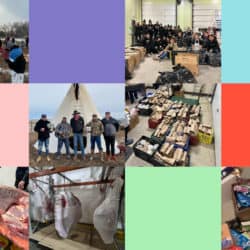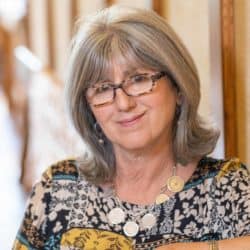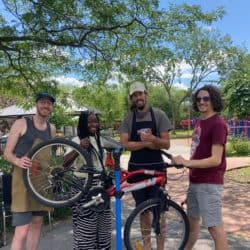As Whitehorse celebrates 10 years of Pride, organizer Queer Yukon looks back at its history, from volunteer-run grassroots group to non-profit in 2018. Now the group is weighing whether to become a charity.
Ten years ago, a group of friends in Whitehorse’s queer community came together under the banner of the Queer Yukon Society to plan the city’s first-ever Pride parade. Hundreds of people carrying rainbow flags and wearing colourful clothing, hot-pink wigs, and feather boas marched along Main Street. The next day, canoers, kayakers, and standup paddleboarders floated down the Yukon River for the Pride Paddle event.
“It was so clear that it was a celebration of the Yukon’s queer community and not just a copy of what you might find elsewhere,” says Queer Yukon’s executive director, Mona Luxion, who attended their first Whitehorse Pride event in 2014.
Since then, Queer Yukon has expanded into a multifaceted non-profit that operates across the territory; plans year-round events such as drag brunches, movie nights, and workshops; and offers direct aid programs.
Queer Yukon evolved from an entirely volunteer-run grassroots group to a non-profit in 2018, around the same time the territorial government conducted consultations with the LGBTQ2S+ community to better understand what programs and services were most needed. In a survey as part of the consultations, 62% of respondents said that providing funding to support the development of an LGBTQ2S+ community centre was extremely or very important.
Despite a thriving and growing LGBTQ2S+ community – according to the 2021 census, Yukon has the second-highest proportion of transgender and non-binary people in the country (Nova Scotia has the highest) – there were no dedicated queer spaces in Whitehorse.
To help fill that gap, Queer Yukon opened its first office-cum-community centre in the city in early 2023. The space has a large lounge, library, kitchen, showers, and laundry. In addition to hosting regular drop-in hours and events, Queer Yukon also rents the space out to community partners.
Even if people never come in the door, there’s something symbolic about knowing there’s a physical piece of the city set aside for queer and trans people. Seeing that sign on the side of the building, it lets people know that they matter.
Mona Luxion, Queer Yukon
“One of the things that a physical space does better than any virtual space I’ve been in is that all sorts of people can come together. It can be really multigenerational. You can meet people that you might not seek out otherwise,” Luxion says. “And even if people never actually come in the door, there’s something symbolic about knowing there’s a physical piece of the city set aside for queer and trans people. Seeing that sign on the side of the building, it lets people know that they matter.”
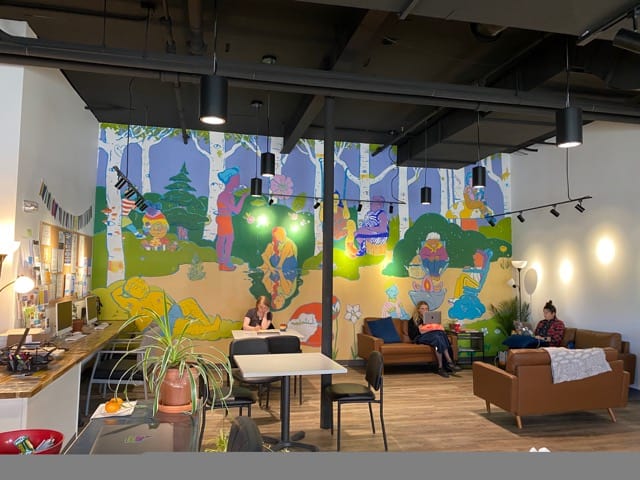
The goal of the community centre is to provide a safe, welcoming space for the queer and trans community, but Luxion says it’s an important resource for allies, too. “We have people coming in with questions about how to support a family member or co-worker.”
As part of the group’s mission, Queer Yukon offers healthcare and housing-related support to the LGBTQ2S+ community. The Gender Gear Program provides free gender-affirming gear such as breast forms, chest binders, and menstrual underwear, and the Utility Payment Program offers a $500 fund to cover utilities for those who are facing housing insecurity.
“This is a community with a lot of powerful, radical energy. And at the same time facing some really tough challenges in terms of the cost of living and the housing crisis,” Luxion says.
The political climate is changing so rapidly that even though we’ve been a non-partisan organization so far, looking at what’s happening in the US and in other parts of the world, there’s certainly concern that things could change here too.
Mona Luxion
Currently, the majority of Queer Yukon’s funding comes from the territorial and federal governments. They’re considering becoming a charity so they can ramp up fundraising efforts, but the group worries how that could restrict their advocacy work. Canada’s Income Tax Act prohibits a charity from directly or indirectly supporting or opposing political parties or candidates.
“The political climate is changing so rapidly that even though we’ve been a non-partisan organization so far, looking at what’s happening in the United States and in other parts of the world, there’s certainly concerns among members of our community, members of our staff, and our board team that things could change here too,” Luxion says.
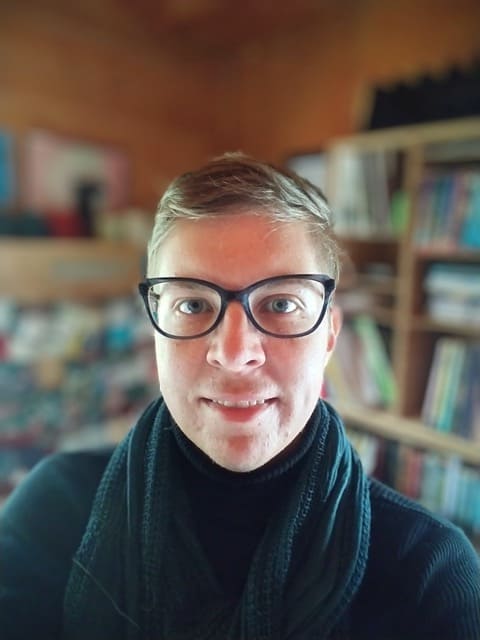
For Queer Yukon, one of the challenges of operating in a small community is having to juggle varied roles: front-line service provider, activist group, and Pride organizer. Delivering cultural programming remains at the core of Queer Yukon’s mandate, and the annual Pride celebrations are a chance for the group to reach communities across the territory.
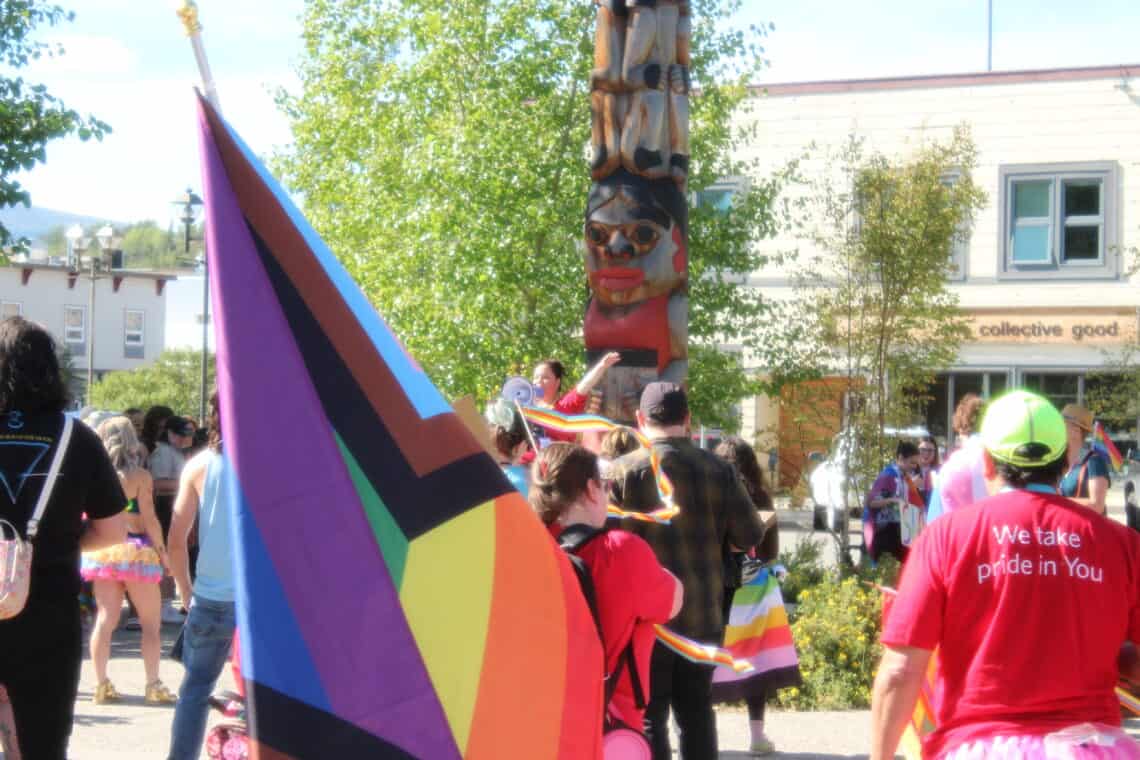
The group is busy preparing for Pride events in Dawson City (July 27 to 30), Whitehorse (August 5 to 13), and Watson Lake (August 26), with parades and picnics in each city. In Whitehorse, the group is going all out. They’ve planned drag brunches and dance parties, youth movie nights, an activism workshop, and more events to be announced.
“With all the daylight we have, summer in the Yukon gets people really energized. We’ll party hard and then hibernate for half the year,” Luxion says. “And it’s 10 years of Pride in the territory, so it’s important to celebrate that.”
